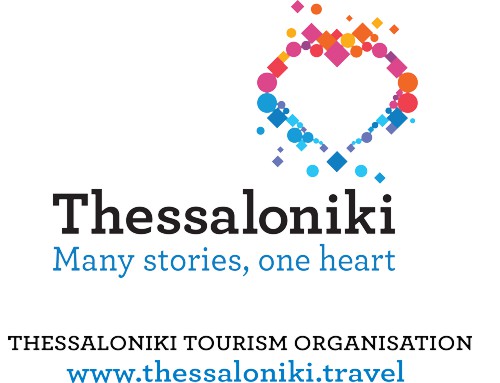Article by Tasneem hossain Director, Continuing Education Centre (CEC) Multilingual poet, columnist, op-ed and fiction writer, translator and training consultant
Επιμέλεια: Εύα Πετροπούλου Λιανού
“You can’t pour from an empty cup. Take care of yourself first.”
The saying suggests that in order to take care of others effectively, we must take care of ourselves first.
How many of us truly take care of ourselves in the true sense of the word?
Normally most people think going to the parlour, having a lavish bath in the bath tub or exercising regulary is self-care. In fact an ideal self-care is an amalgamation of different activities and mindsets which may benefit you-mentally, emotionally, physically and spiritually.
It doesn’t mean that you stop having a beauty regime or stop taking care of your diet or stop enjoying a late night movie – these are all part of the self-care routine. Just remember that it’s important to consider many other activities required to maintain a healthy, stable mental, physical and spiritual state.
Sadly, majority of us simply don’t have the time, grit or means to make regular self-care a reality in our daily lives. Our daily chores, the environment and daily happenings are a hindrance which drains us of our energy to spare some time for self-care. Some of us may face social or cultural barriers; some may not have the access; some might even face criticism as being too luxurious and selfish in taking self-care.
Self-care is not selfish. Self-care allows you function better in order to increase your ability to help care for others. If you cannot expect your car to run continuously for thousands of miles without refueling then how can you expect of taking care of others without rejuvenating yourself? Catering for the need to individual happiness not only needs to be normalised but celebrated and promoted in society.
Each individual has her/ his own problems to deal with. So you should never feel any shame for looking after your health. Staying in a healthy and happy state of mind, you need to proactively incorporate self-care into your daily routine.
What is self-care?
WHO defines self-care as individuals, families and communities’ promoting and maintaining their own health, preventing disease, and coping with illness and disability, with or without the support of a health worker.
Self-care is so important that a whole day, a week and even a month has been dedicated to raise awareness about the importance of self-care around the globe. International Self-Care Day (ISD) is on July 24 to represent the benefits of self-care experienced 24 hours a day, seven days a week (24/7).
It has its roots in the 1950s Civil Rights Movement, as Black activists and organisers integrated the term meaningfully into their movements. The concept took off in the 1970s, when the Black Panther Party promoted self-care as a revolutionary way for Black and other oppressed citizens to heal from the constant pains of racism, and empower themselves to continue their fight for equality. Women’s rights activists and feminist activists also began adapting their own ideas of what self-care meant for women.
Modern self-care aims to help everyone to overcome the stress that affects millions of people worldwide and to practice self-care proactively for personal wellness.
International Self-Care Day was developed in 2011, by the International Self-Care Foundation (ISF), a UK-based organization to promote self-care as a strong foundation for health. The U.S. Senate designated July 24 as International Self-Care Day in 2014.
ISF’s ultimate aim is for ISD to be formally recognised by the United Nations as an official commemorative day, which would further encourage worldwide participation.
This annual celebration inspires and gives an opportunity to promote self-care for personal wellness and to create awareness and reevaluate your health and lifestyle. Self-care interventions do not replace health systems, they enhance them. This practice can also include collaboration with healthcare professionals when needed. This day also helps organisations and workplaces to focus on self-care routine as a public health concern and implement programs to make self-care more accessible. It’s part of a holistic approach to improve health care and contributes to universal health coverage.
In a time when millions across the globe are suffering from depression leading to suicides, disoriented families and violence, we need to include self- care on a daily basis. We need to remember that even the smallest actions can lead to initiate progress in recovery.
Let’s look at some of the mindfulness tools that we can practice every day:
• Start your day by stretching. A healthy and happy start to the day makes a lot of difference to the rest of the day. Exercise daily. Taking in fresh air is vital to our holistic wellbeing: go for a 30 minute walk every day in nature; go bird watching or go by the sea shore- whichever instills happiness in you. The air in nature and sunlight works as an antidepressant.
• Do breathing exercises. Practice relaxing activities such as meditation and yoga regularly. This will help you to acquire a positive attitude.
• Stay hydrated by having 3 – 4 litres of water in a day. Have a balanced and healthy diet rich in a healthy mixture of protein, carbohydrates, fibres, vitamins and minerals
• Sleep 6-8 hours to recharge your body. Avoid using your phone or computer during bedtime to have a good sleep.
• Decrease screen time. Detox your social media by un-following accounts that make you feel bad
• Take care of body hygiene.
• Get in touch with loved ones for emotional support or practical advice. Surround yourself with positive minded people.
• Pamper yourself at home or in parlour; buy something (within budget); have a lavish breakfast, lunch or dinner – solo or with loved ones at a restaurant; watch a movie with friends; listen to music or have a dance party at home.
• Keep Journaling about the good things in life. It’s an excellent way to manage anxiety, reduce stress, and cope with depression. Practice gratitude. Be kind-research shows that random little acts of kindness boost happiness and improve empathy levels.
• Solve quizzes and play brain games. Learn a language, a new dish. Learn something new occasionally to keep the mind working.
• Volunteer for charity work. Read motivational stories. Read selected self-help books.
• Take some time out and review your total health plan. Take actions to plan for your health and your future.
• Pay your bills on time and put money into savings for financial self – care.
• Tidy up your home by de-cluttering. A neat and clean home uplifts one and helps in environmental self-care.
Do remember that self-care looks different for each individual. There is no single one-size-fits-all plan that will continue to be effective throughout your entire life. So make a self -care routine accordingly and be ready to incorporate what’s needed.
Make a commitment to yourself for self-care. Make stick on notes with the things you need to do and stick it in places where you can see them at home and office as a reminder.
Practice positive self-care affirmations to help build self-esteem, reduce stress, and increase emotional resilience. Self-care allows you the opportunity to stay physically, mentally, financially and spiritually healthy. These, in turn, help you to be more productive and successful in all aspects of life.
The importance of self- care is so much that some countries like the UK and Canada have self-care weeks. Since 2011, self-care activities have been organised around the globe in many countries like Australia, Bolivia, Brazil, Canada, China, Iran, Kenya, Mexico, Myanmar, Nepal, South Africa, South Korea, Sri Lanka, Switzerland, Tanzania, the United States, the United Kingdom and Vietnam.
In 2017, America started Self-Care Awareness Month in September. However, the World Health Organization announced a ‘Self-Care Month’ starting on 24 June and ending on 24 July to coincide with International Self-Care Day. This is to promote regional and national level initiatives to practice self-care.
The 2023 theme of International Self-Care Day is ‘resilience, adaptability, and thriving in adversity.’ This theme calls for action worldwide to develop resilience in order to manage stress, cope with negative emotions, and maintain physical and mental health.
Whatever type of self-care one practices, one is bound to have positive benefits. Self-care concept may seem pointless to some, but it’s undoubtedly vital for having an ideal healthy lifestyle. Most of us try to find positivity in this world. If we truly want to achieve it, it’s imperative to start with ourselves.
Small steps will take you closer to achieve happiness. Your individul little steps together with others will bring happines in this world.
This year, from July 24th onwards, start practicing self-care. Transform yourselves into a new version of you – a better and happier you.
Be tha change to accomplish your happiness for a beautiful tomorrow.
Tasneem Hossain is a multilingual poet, columnist, op-ed and fiction writer, translator and
training consultant. She is the Director of Continuing Education Centre, Bangladesh.
References:
1. International Self-Care Day, 24 July 2023 – Importance, Theme & History, Pace Hospitals.
2. Lifestyle desk, International Self-Care Day 2022: Daily morning habits to inculcate in your lifestyle, The Indian Express, July 24, 2022.
3. INTERNATIONAL SELF-CARE DAY, ISF International self-care foundation.


































